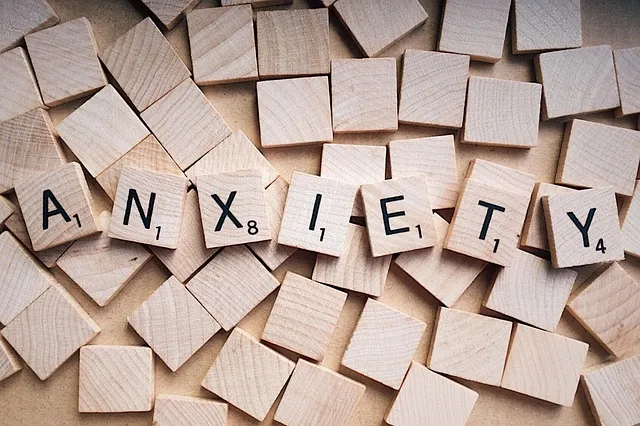Lakewood Kaiser Permanente psychiatry reviews emphasize the importance of coping skills for mental health in a stressful world. Developing these skills involves self-awareness, healthy practices like mindfulness and exercise, and culturally sensitive techniques aligned with individual beliefs. Understanding personal stressors, building resilience, and integrating relaxation techniques significantly enhance coping abilities and overall well-being. A robust social support network, fostered through empathy-building strategies and community engagement, is crucial for navigating life's challenges and promoting mental wellness, as highlighted by these reviews.
At Lakewood Kaiser Permanente, renowned for its psychiatric expertise as evidenced by numerous reviews, coping skills development is recognized as a cornerstone of mental well-being. This comprehensive guide explores strategies to navigate life’s challenges effectively. From understanding the foundational role of coping skills to identifying personal stressors and building resilience, we provide actionable insights. Additionally, we delve into mindfulness techniques, relaxation practices, and the power of social support, offering practical tools to foster robust mental health, backed by expert psychiatry care.
- Understanding Coping Skills: A Foundation for Mental Well-being
- Identifying Personal Stressors and Triggers
- Building Resilience: Strategies for Overcoming Challenges
- Mindfulness and Relaxation Techniques for Daily Practice
- Social Support and Connection: Nurturing Healthy Relationships
Understanding Coping Skills: A Foundation for Mental Well-being

Coping skills are essential tools for maintaining mental well-being, especially in today’s fast-paced and often stressful world. According to Lakewood Kaiser Permanente psychiatry reviews, fostering robust coping mechanisms is a cornerstone of holistic mental healthcare. These skills empower individuals to navigate life’s challenges, manage stress, and promote overall resilience. Understanding coping skills involves recognizing the importance of healthy ways to process emotions, make sense of traumatic or difficult situations, and adapt to change.
Developing effective coping strategies begins with self-awareness and recognition of personal triggers. It involves learning to identify and express emotions healthily, practicing mindfulness, and adopting positive behaviors like regular exercise, sufficient sleep, and engaging in hobbies. Cultural sensitivity in mental healthcare practice also plays a significant role, ensuring that coping techniques are tailored to an individual’s unique cultural background and beliefs. By integrating these strategies into daily life, individuals can build confidence boosting mechanisms to cope with stress, anxiety, or depression, ultimately enhancing their mental well-being.
Identifying Personal Stressors and Triggers

Understanding your personal stressors and triggers is a crucial step in developing effective coping skills. At Lakewood Kaiser Permanente psychiatry, reviews often highlight the importance of self-reflection to recognize what sets off an individual’s stress response. This could be a specific situation, person, or even certain thoughts and memories. By identifying these triggers, one can begin to tailor coping strategies accordingly. For instance, if work deadlines consistently cause anxiety, practicing time management and setting realistic goals can help manage this stressor.
Moreover, cultivating positive thinking and empathy building strategies are valuable tools in navigating personal stressors. Emotional intelligence plays a significant role here; it enables individuals to recognize and understand their emotions as well as those of others. Through these means, one can develop resilience, enhance coping abilities, and improve overall mental health, as evidenced by various Lakewood Kaiser Permanente psychiatry reviews.
Building Resilience: Strategies for Overcoming Challenges

Building resilience is a crucial aspect of coping skills development, empowering individuals to overcome challenges and navigate life’s storms with strength and adaptability. At Lakewood Kaiser Permanente psychiatry, we understand that developing resilience is a transformative process, enabling folks to bounce back from setbacks and cultivate a sense of control over their lives. Our psychiatrists and mental health experts emphasize the importance of fostering emotional agility and coping mechanisms as part of our comprehensive treatment approach.
Through Trauma Support Services, we guide individuals in processing past traumas and developing effective strategies for managing anxiety and stress. Burnout Prevention programs teach mindfulness techniques and self-care practices to maintain balance and resilience over time. Empathy Building Strategies are also integral to our practice, fostering understanding and connection, which can significantly enhance one’s ability to cope with adversity.
Mindfulness and Relaxation Techniques for Daily Practice

Incorporating mindfulness and relaxation techniques into daily routines can significantly enhance mental wellness, as highlighted by many Lakewood Kaiser Permanente psychiatry reviews. Practices such as deep breathing exercises, yoga, and meditation help individuals achieve a state of calm and focus, reducing stress levels. These techniques are not only effective but also accessible; one can engage in them virtually anywhere, making them ideal for maintaining mental health amidst the hustle and bustle of daily life.
The Stress Management Workshops Organization emphasizes the importance of learning and practicing these skills to foster resilience against stressful situations. In alignment with this, Mental Health Policy Analysis and Advocacy groups advocate for integrating such techniques into broader mental wellness initiatives. By regularly incorporating mindfulness and relaxation, individuals can better navigate life’s challenges, ultimately leading to improved overall mental health and well-being.
Social Support and Connection: Nurturing Healthy Relationships

Building a strong social support network is an essential aspect of coping skills development, as it provides individuals with a sense of belonging and connection. According to Lakewood Kaiser Permanente psychiatry reviews, fostering healthy relationships can significantly contribute to one’s mental wellness. Nurturing these connections involves active listening, open communication, and empathy building strategies—skills that are crucial for creating deep and meaningful bonds. By participating in the Mental Wellness Podcast Series Production or engaging in community events, individuals can expand their social circle and find support from like-minded people, which is a vital component of navigating life’s challenges.
The power of empathy lies in its ability to foster understanding and strengthen relationships. When individuals within a supportive network practice empathy, they create a safe space for vulnerability and open dialogue. This not only enhances emotional intimacy but also encourages the sharing of experiences and strategies for coping with stress, anxiety, or depression. Mental Health Awareness initiatives often highlight the importance of such connections, emphasizing that social support acts as a buffer against mental health issues and promotes overall well-being.
Coping skills development, as highlighted by experts at Lakewood Kaiser Permanente psychiatry reviews, is a multifaceted process crucial for maintaining mental well-being. By understanding personal stressors, building resilience, adopting mindfulness and relaxation techniques, and fostering strong social connections, individuals can navigate life’s challenges more effectively. These strategies, backed by professional guidance, empower people to enhance their coping abilities and lead happier, more fulfilling lives.






